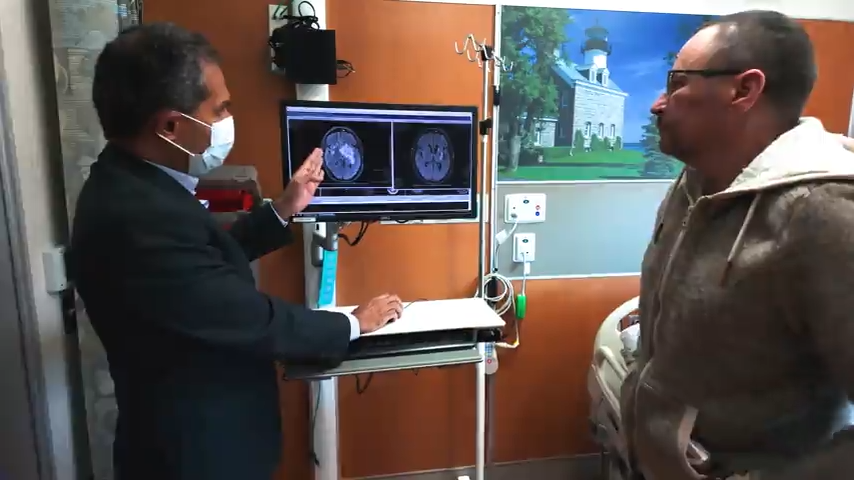UConn is casting a wide net to welcome submissions from developers and others with innovative, cost-effective ideas on how to build student housing at UConn Avery Point, helping to bring that vibrant campus to the next level.
The University has issued a “Request for Expressions of Interest” (RFEI) that invites interested parties to submit details on how they would build and fund student housing on the Avery Point campus to accommodate 150 to 250 students.
It’s part of a broader emphasis on potential enhancements at UConn’s signature waterfront campus in Groton, including the possibility of adding more majors that students can fully complete on site without the need to transfer to Storrs.
It also comes as the University is significantly expanding its student housing near UConn Stamford; adding a student housing option near UConn Hartford for the first time; and preparing to open its new 657-bed residence hall at UConn Storrs in August.
With 450 students on its 72-acre campus, UConn Avery Point offers four-year degrees in marine sciences, maritime studies, English, and General Studies. Students can also start more than 110 majors at Avery Point that can be completed elsewhere, usually UConn Storrs.
Avery Point students and their families consistently tell UConn how much they love the campus, but the lack of housing has been a barrier to increasing its enrollment – especially since rentals have become more expensive and scarce in the region amid hiring booms at major employers.
The ability to offer housing and new majors at Avery Point would significantly increase UConn’s ability to draw more students there, helping the University in its goal under its Strategic Plan to building on the unique attributes and strengths of each of its seven campuses.
“The expansion of UConn Avery Point can greatly benefit southeastern Connecticut by fostering economic growth, addressing workforce needs more comprehensively, promoting innovation, and enriching community life,” says Annemarie Seifert, UConn Avery Point’s campus dean and chief administrative officer.
“These advantages enhance the overall vitality and appeal of the region as a desirable place to live, work, and invest in,” she adds.
As envisioned, one possibility is that the University would lease the facility from the developer and operate it as a residence hall, similar to the arrangement it currently uses at UConn Stamford and plans to enter into at UConn Hartford.
It would be expected to include single- and double-occupancy rooms, study areas, on-site laundry facilities, air conditioning, and features that are common to similar types of traditional student housing.
UConn owns three parcels where the housing is possible: A preferred one-acre location within the core of the Avery Point campus and two larger parcels north of Shennecossett Road, across the street from the campus entrances.
Looking to maximize use of available land in an area where buildable land is precious, UConn’s RFEI leaves room for developers to suggest creative ways to cover their costs, given that they would be responsible for any needed capital and the student housing would be expected to operate at a break-even cost to the University.
For instance, if they build student housing on the core campus site, they can propose a commercial or residential use on one or both of the UConn-owned Shennecossett Road sites. If they envision building the student housing on one or both of those sites, they could compose a compatible residential or commercial development there as well.
Nothing could be built on the core campus site other than student housing.
The for-profit residential or commercial development would need to have “a positive economic impact … which facilitates the University’s contribution to promoting economic development and complementing the ongoing revitalization efforts in Groton,” the RFEI says.
Some potential ideas for the development sites include a hotel and/or conference center, a retail development, and market-rate or affordable apartments. As part of the process, UConn officials are also talking with regional stakeholders to understand their needs and wants, which will help the University in assessing the proposals.
The University would have the option to take ownership of the residence hall after 30 years, but would have no ownership rights or financial obligation connected to the private for-profit development(s) on Shennecossett Road.
The respondents also would have to demonstrate a strong track record in developing properties of similar size, scale, and cost; prove that they can meet the requirements for the financial elements, scheduling, and design; and show that they are entrepreneurial, with a strong focus on community development.
If anything is built on the Shennecossett Road parcels, they would also need to provide pedestrian crossing improvements between the site and the main campus entrances, including sidewalks and signalized pedestrian crossings.
The University will give preference in review and consideration to submissions received by close of business on Aug. 8, 2024.
A specific deadline has not been set for a decision, but depending on the proposals, the student housing would be occupied starting in the fall semester of either 2026 or 2027.
The issuance of the RFEI for Avery Point student housing is one of many areas in which UConn is accelerating its efforts to add and/or expand the residential experience at several of its other campuses, and to deepen ties with the campus host communities.
At its most recent meeting, the UConn Board of Trustees approved plans to lease more space from apartment owners in downtown Stamford to significantly expand student housing availability there.
The University currently has about 540 students living within a short walking distance of UConn Stamford in buildings on Washington Boulevard, Prospect Street, and Franklin Street. A combined total of about 130 more beds will be added starting in the fall semester in residential buildings at several other downtown locations.
At the same time, contracts are being drawn up for UConn to lease space in a building at the corner of Trumbull and Pratt streets in downtown Hartford, where it will offer student housing for the first time in 2026 with approximately 200 beds.
Earlier this summer, Connecticut’s State Bond Commission approved financing elements for the project between the Capital Region Development Authority and Shelbourne Properties, which owns the building and will develop the housing, which UConn will run as a residence hall.
The arrangement is similar to the master lease that UConn has in place at UConn Stamford and envisions at Avery Point.
And at UConn Storrs, work continues to move quickly toward the opening in August of Connecticut Hall, a new 656-bed residence hall currently under construction near Mirror Lake.
Connecticut Hall – previously known informally as the new South Campus residence hall — will incorporate the kinds of amenities that provide students with a holistic on-campus residential experience. It will also serve as a living laboratory for sustainability approaches including geothermal wells, advanced energy and water conservation methods, and other green technologies.
In addition to the suite-style units, the residence hall includes student lounges, common spaces, a game room, laundry facilities, ground-floor offices, seminar rooms, multipurpose rooms, and other spaces.
It also includes a new 500-seat dining facility featuring naturally lit high ceilings overlooking Mirror Lake along with spacious courtyards and outdoor seating around the building.
When it opens in August, Connecticut Hall will be the newest residence hall since the 2016 opening of the building formerly known as Next Generation Connecticut Hall, which was renamed the Peter J. Werth Residence Tower in 2017 in honor of his gift of $22.5 million to UConn to support innovation and entrepreneurship.



